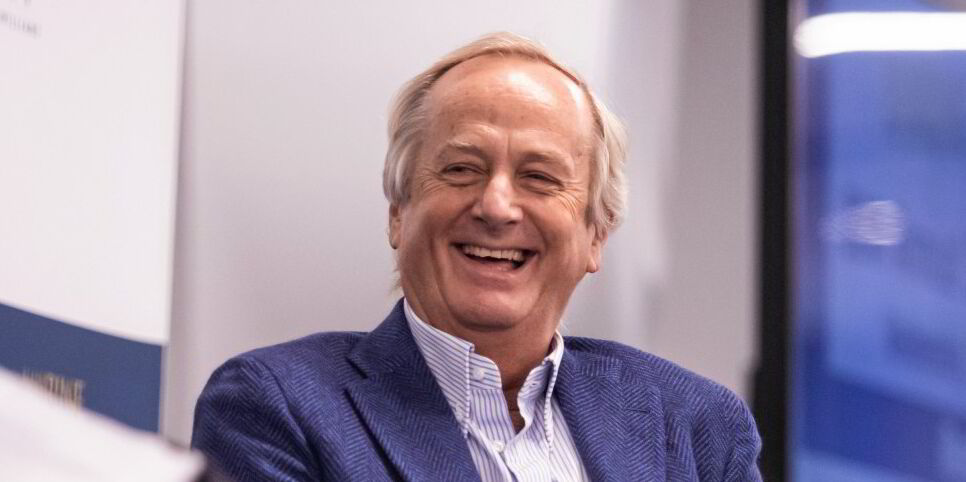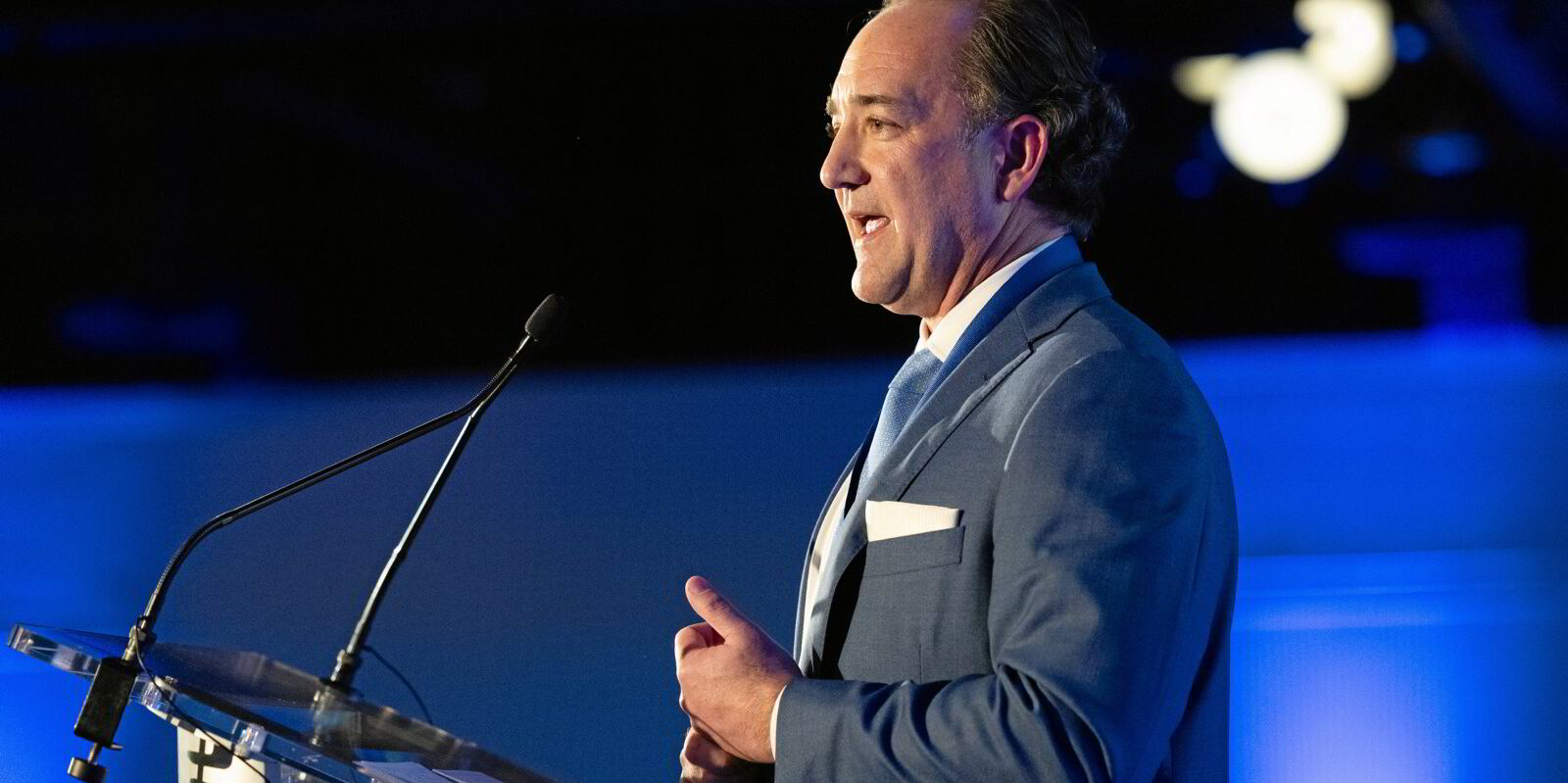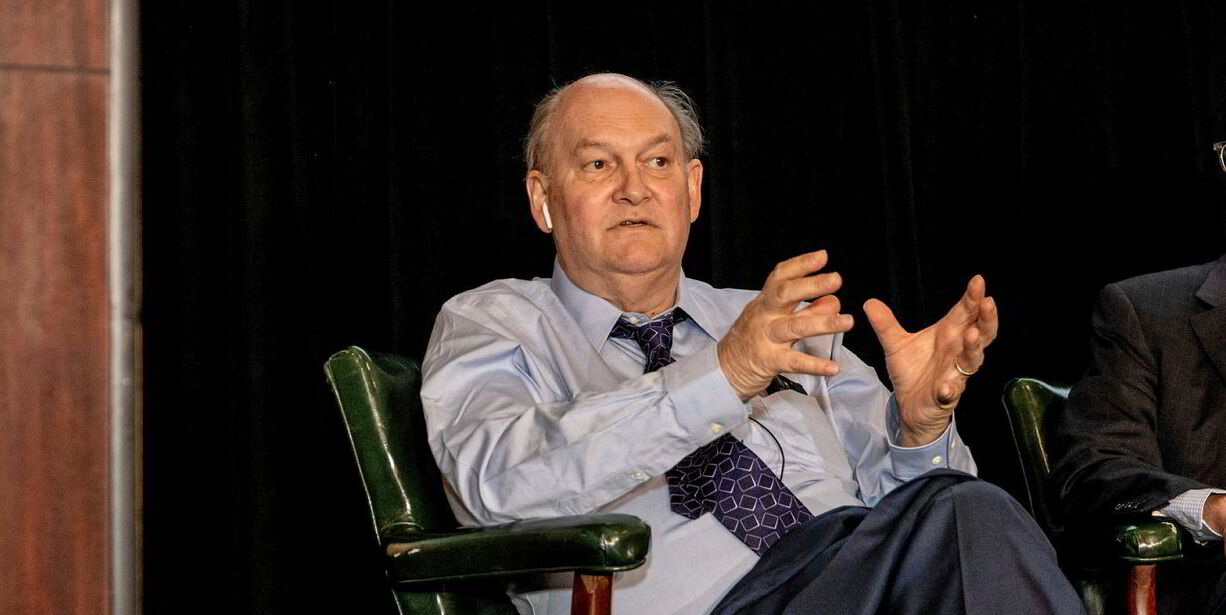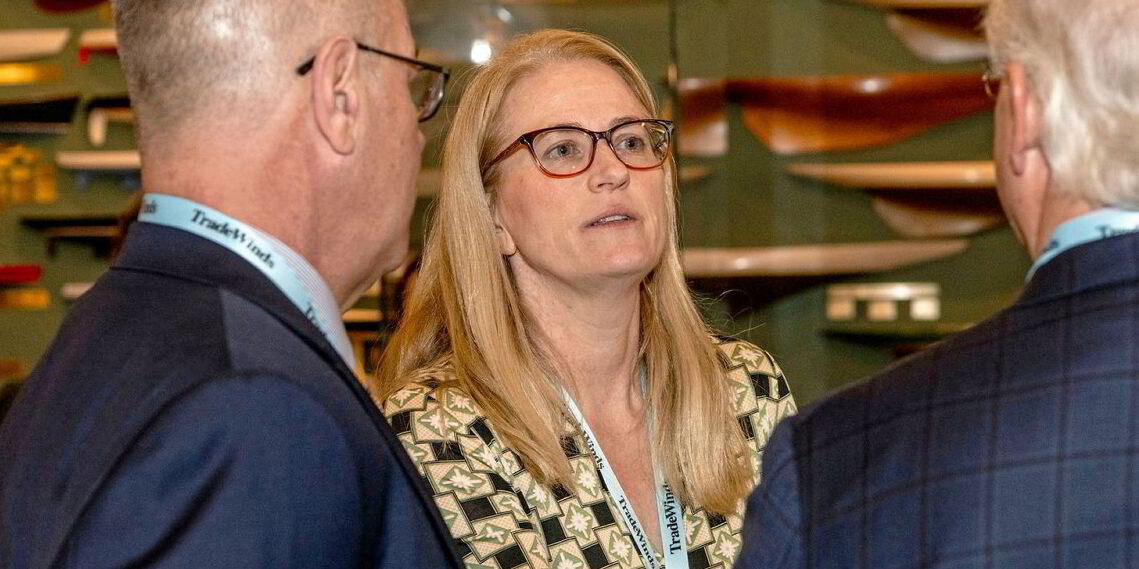It is not that Genco Shipping & Trading chief executive John Wobensmith needed any further convincing that pursuing a high dividend payout strategy was right for his company’s capital allocation approach.
He has, after all, been pushing the tactic since at least 2021, when Genco determined it would start paying out a higher percentage of its free cash flow in shareholder distributions.
But when Greek shipping magnate George Economou entered the company as a 5.4% shareholder last December, the discussion eventually would turn to Economou’s demand that Genco pursue share buybacks.
The demand is not unreasonable on the face of it: Genco — like most of its public dry bulk peers — had been trading below its net asset value, and stock repurchases are a standard tactic for companies trying to close such a gap.
It was just not the Genco approach. So it was more validation than anything, John Wobensmith told TradeWinds in a recent interview, when Genco commissioned a review of 52 companies across various shipping sectors through investment bank Jefferies.
The findings showed that those without a stock buyback authorisation in place outperformed those with such a plan, Wobensmith said, and it bolstered Genco’s conviction in telling Economou it would not be following his suggestion.
Economou’s demands were part of a larger proxy fight that ended quietly if not entirely happily last month when the Greek abandoned the battle, withdrawing a director candidate and a move to overturn bylaws.

These are heady times for shipowners across multiple sectors, including the public ones.
Years into a boom cycle, rampaging cash flows have allowed owners to make early repayments on bank debt, taking leverage levels to or near record lows.
That may not be good for the lenders, but it is a great place to be for the owners.
Still, it creates a new issue for the cash-rich owners: How to deploy all that capital, including pressure to return it to shareholders.
With the annual Marine Money Week looming in New York, TradeWinds’ finance business report takes a look at how the three major Manhattan-based owners — International Seaways, Genco Shipping & Trading and Scorpio Tankers — are approaching the challenge of capital allocation.
(There is an asterisk next to Scorpio: the owner is technically based in Monaco, but its large New York office houses the president, chief financial officer and chief operating officer).
Scorpio favours share buybacks, while Genco and chief executive John Wobensmith preach the virtues of robust dividend payouts.
Seaways, meanwhile, offers a balanced approach that some might find boring, but which management says will carry the day in the long term.
A key element was that Genco’s share price kept improving, for which Economou himself took a large part of the credit. Genco strongly disagreed, but either way, the battle was over and Economou went about cashing out the rest of his shareholding at a handsome profit.
What Genco and Wobensmith see is a dividend strategy that is, well, paying dividends as it helps support the Manhattan-based owner’s trading price.
“We’ve now paid 19 consecutive dividends — it’s the longest in the sector,” Wobensmith said.
“We never turned it off during Covid.
“We didn’t turn it off last year when the formula we use would have indicated zero dividend for the second and third quarters. Management and the board opted to keep the strategy going, and we paid 15 cents [per share] for both quarters.
“We’ve done exactly what we said we would do.
“We feel like, in the big picture, we’ve created the best risk-reward model. We’ve created a scenario where the company is always set up to play offense. When there is a soft point in the market, we can continue to pay the dividend but also to grow. It’s about always playing offense going forward.”
Wobensmith explained that, as the policy was being hatched in 2021, Genco kept paying lower dividends than some of its peers, electing to devote more cash flow to aggressive debt reduction.
Those efforts have allowed the outfit to reduce net debt to 7% en route to a goal of zero net debt. That is down from 31% net debt in the first quarter of 2021.
Genco’s financial operating breakeven sits at $10,270 per vessel per day, down from $13,025 in the first quarter of 2021.
Genco’s policy is to pay out all of its cash flow beyond what is encumbered in a quarterly reserve, which last quarter came to $19.5m. The reserve can be used for vessel purchases. It also can be used to supplement or “juice” the dividend in a softer quarter like the ones Wobensmith mentioned.
It even can be used for share buybacks, although Genco does not currently have a programme in place.
“It’s not that share buybacks are off the table,” Wobensmith said. “If we for some reason trade at a big discount to NAV again, we’ll definitely be looking at it. We have the ability to do it. It’s something we discussed when we first formed the strategy.”

But for now, things are looking up. The stock has increased by 35% year to date and 46% since the start of 2023.
“We’re almost one-to-one with NAV now, and I’m happy the gap has closed,” Wobensmith said. “I think people really appreciate the value strategy. There’s a track record being established.
“We paid a lower dividend than a lot of our peers in 2021 and aggressively paid down debt to set up where we are today. I’m happy we had that patience.”
Since Genco hatched the allocation strategy in April 2021, it has paid down $279m of debt while distributing nearly $200m in dividends and investing $236m in the fleet.
At Genco’s most recent earnings, equity analysts had the share price at between 80% and 86% of NAV.
For Wobensmith, the next step is to not only close the remaining gap but to trade at a premium to NAV — a rarity for dry bulk companies in recent years.
Sector giant Star Bulk Carriers of Greece is one of the few that has at times managed the trick. It is been a master of using its shares as currency for consolidation, striking in nine separate cases for ships, fleets and even a company in this year’s $836m all-stock buy of Eagle Bulk Shipping.
Genco is looking to a day where its shares could be used that way.
“Trading at a premium to NAV – that is the goal,” Wobensmith said.






